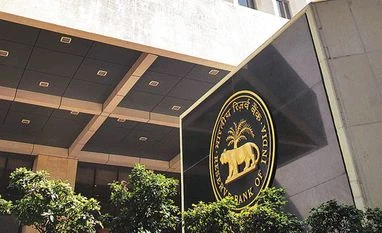Aimed at encouraging digital transactions, the Reserve Bank on Thursday said it will soon come out with final guidelines on MDR charges on debit card payments.
Pending the final guidelines the existing norms for MDR (merchant discount rate) charges will continue beyond March 31, RBI Governor Urjit Patel said while announcing first bi-monthly monetary policy for 2017-18.
According to the existing guidelines, the MDR for debit card payments, including for payments made to the government, is capped at 0.25 per cent for transactions up to Rs 1,000 and 0.5 per cent between Rs 1,000-2,000.
The Reserve Bank issued a draft circular on 'Rationalisation of Merchant Discount Rate (MDR) for Debit Card Transactions' on February 16.
"The extensive feedback received, including from the government, banks, card networks, the Indian Banks' Association, the Payments Council of India, private entities and individuals are being examined. Until the issuance of final guidelines, the extant instructions on MDR for debit card transactions will continue to apply," he said.
However, the policy did not spelled the exact timeline by when the final guidelines on rationalisation of MDR charges would be announced.
According to the draft guidelines issued in February, the MDR charge has been proposed at 0.40 per cent of the transaction value for small merchants with annual turnover of Rs 20 lakh and special category merchants, like utilities, insurance, mutual funds, educational institutions and government hospitals.
MDR charge, which is levied on debit card transaction, would be even less at 0.3 per cent if transaction is through digital PoS (QR Code), it had said.
The draft also proposes that banks will ensure that all merchants display the signage "No convenience or service charge is payable by customers".
Pending the final guidelines the existing norms for MDR (merchant discount rate) charges will continue beyond March 31, RBI Governor Urjit Patel said while announcing first bi-monthly monetary policy for 2017-18.
According to the existing guidelines, the MDR for debit card payments, including for payments made to the government, is capped at 0.25 per cent for transactions up to Rs 1,000 and 0.5 per cent between Rs 1,000-2,000.
More From This Section
The existing MDR cap is 0.75 per cent for transactions up to Rs 2,000 and one per cent for over Rs 2,000. However, there is no RBI cap on MDR on credit card payments.
The Reserve Bank issued a draft circular on 'Rationalisation of Merchant Discount Rate (MDR) for Debit Card Transactions' on February 16.
"The extensive feedback received, including from the government, banks, card networks, the Indian Banks' Association, the Payments Council of India, private entities and individuals are being examined. Until the issuance of final guidelines, the extant instructions on MDR for debit card transactions will continue to apply," he said.
However, the policy did not spelled the exact timeline by when the final guidelines on rationalisation of MDR charges would be announced.
According to the draft guidelines issued in February, the MDR charge has been proposed at 0.40 per cent of the transaction value for small merchants with annual turnover of Rs 20 lakh and special category merchants, like utilities, insurance, mutual funds, educational institutions and government hospitals.
MDR charge, which is levied on debit card transaction, would be even less at 0.3 per cent if transaction is through digital PoS (QR Code), it had said.
The draft also proposes that banks will ensure that all merchants display the signage "No convenience or service charge is payable by customers".
)